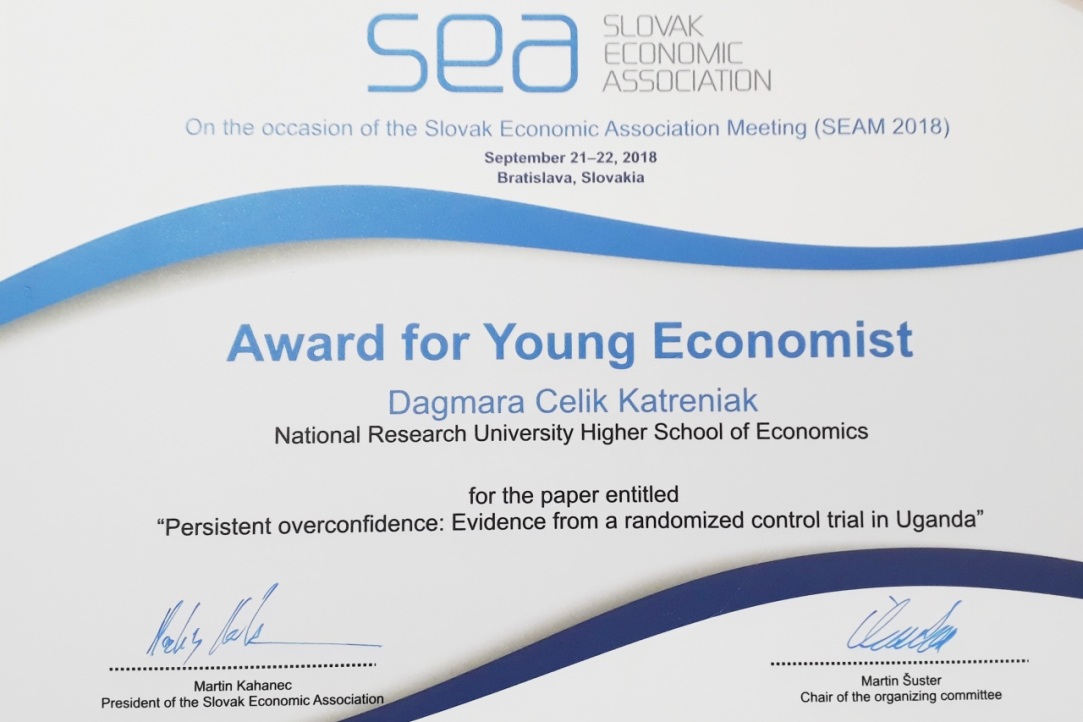In October, the International Laboratory on World Order Studies and the New Regionalism hosted a research seminar in which Dr. Glenn Diesen, Professor in the Faculty of World Economy and International Affairs at HSE, presented a recent paper entitled ‘Geoeconomics in the Fourth Industrial Revolution: The Restructuring of Global Value Chains.’ The discussion centred on how technology has become increasingly important for competitiveness in global value chains. This subsequently incentivizes government support for technological development as the main tool for Great Power rivalry, which can be seen in the cooperation between Western governments and corporations over the past several decades to develop technological leadership with high-value activities and concurrently engineer hierarchically-structured global value chains.
Tag "international faculty"
Values have a great influence in our life. They play a constant role in economics, politics and societies or in disciplines like philosophy, psychology, religion, and sociology. They are fundamental in the construction of a good life for every individual, for achieving quality of life, and for finding meaning.
Kristian Behrens serves as Leading Research Fellow at the HSE Centre for Market Studies and Spatial Economics (CMSSE) and Academic Supervisor at the Centre for Interdisciplinary Basic Research at HSE St. Petersburg. Professor Behrens focuses primarily on regional and urban economics, new economic geography, international and interregional trade, multiregional spatial and urban systems, and monopolistic competition. He recently spoke with the HSE New Service about the work currently being undertaken by CMSSE, his broader research interests, and his impressions of working in St. Petersburg.
Several of this year’s tenure-track faculty members have stayed at HSE previously as postdoctoral fellows. The HSE Looktalked to Arnab Roy Chowdhury, Assistant Professor at School of Sociology, about his experience and on how best to get immersed into the HSE academic community.

Originally from Greece, Pános Kompatsiáris was attracted to join the Higher School of Economics because of the university’s reputation for exceptional working conditions and fostering career development. Having spent the last ten years in a variety of cities, including Edinburgh and Berlin, Professor Kompatsiáris brings his background in economics, cultural studies and art theory to his current position as Assistant Professor in the Faculty of Communications, Media, and Design at HSE.
The University’s international faculty had a great HSE Day, where they took part in Open Talks – English-language lectures – and other informative events.
After completing a Master’s in International Public Law in 2007, Maria Sole Continiello, a native of Rome, Italy, spent several years working as an international lawyer before returning to academia. While pursusing a Ph.D. in Politics, Human Rights and Sustainability at the Scuola Superiore Sant’Anna in Pisa, her research focused on the inter-applicability of human rights law and international humanitarian law during military occupation. This work afforded her the opportunity to move around Europe, including to the Irish Center For Human Rights in Galway, Ireland, and the Max Planck Institute for Comparative and International Public Law in Heidelberg, Germany.
